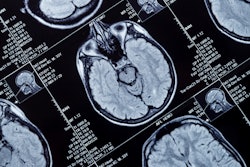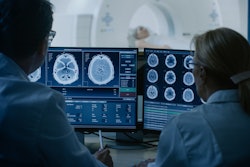NYU Langone Health spinout Microstructure Imaging (MICSI) has secured U.S. Food and Drug Administration (FDA) 510(k) clearance for its MICSI-RMT AI image enhancement software for brain MRI.
Designed to enhance white-matter imaging, MICSI-RMT employs a random matrix theory-based algorithm. This means the AI works without the need for external training data or high-performance GPUs, according to MICSI. Additionally, MICSI-RMT includes processing modules that support weighted linear least squares and Bayesian fitting techniques to facilitate quantitative analysis of diffusion-weighted imaging, as well as DICOM data routing.
As part of its announcement, MICSI noted clinical study findings from a randomized, blinded rater study, in which expert neuroradiologists assessed MR images processed by MICSI-RMT and also per the standard of care. The reviewers preferred the MICSI-RMT-processed images for their clarity and reduced artifacts, achieving higher expert image quality scores compared to standard diagnostic images, according to the firm.
"Raters found that [diffusion tensor imaging] images processed with MICSI-RMT had improved visualization of small structures in brain white matter and improved contrast to distinguish adjacent tissue types, and for fMRI, more anatomically appropriate activation maps," the company said in a statement.
 Example of task-based functional MRI performed on 1.5-tesla scanner. Images courtesy of MICSI.
Example of task-based functional MRI performed on 1.5-tesla scanner. Images courtesy of MICSI.
The software demonstrated notable enhancements in the signal-to-noise ratio (SNR), with MICSI-RMT showing improvements of up to 4.35x for diffusion MRI (dMRI) and 1.9x for functional MRI (fMRI), MICSI said, adding that dMRI enhancement achieved notable improvement parameter precision. Specifically, the precision of ADC maps was improved by over 56.3%, the company said.
Data from MICSI's clinical study was acquired on Siemens Healthineers systems, and the current algorithm is only validated completely for Siemens, MICSI CEO Gregory Lemberskiy, PhD, told AuntMinnie via email. However, the regulatory clearance is not limited to Siemens, and the next product version will support other vendors as well (tested on GE HealthCare and Philips systems), pending additional clinical validation, he added.
"As our next step, we are excited to optimize the capabilities of our MICSI-RMT product for applications outside of the head, focusing on body and prostate MRI for oncological applications," Lemberskiy added. "This presents an exciting challenge to build a product that accounts for motion and susceptibility-induced artifacts."
The FDA clearance marks the clinical translation of advanced MRI research led by Lemberskiy and CTO Benjamin Ades-Aron, PhD, MICSI noted in the announcement.
"Our commitment lies in enhancing the depth and nuance of MRI capabilities, starting with image quality, enabling higher resolution and short scan times," Lemberskiy continued. "Future products will include a broader scope, leveraging resting-state functional MRI and diffusion microstructure parameters to improve diagnostic accuracy and empower healthcare professionals with a more comprehensive view of the human body, leading to earlier and more precise interventions."
Y Combinator introduced MICSI-RMT in June 2023 as a "self-supervised AI approach" and commercial implementation of the MP-PCA algorithm developed by researchers at NYU Radiology's Center for Biomedical Imaging. The AI method learns the noise properties of the MRI exam and removes noise "uniformly across all images of the dataset," Y Combinator pointed out at the time, asserting that efficiency gains could translate into an extra $2 million in yearly revenue for each MRI machine, as well as help doctors make more precise diagnoses.




















